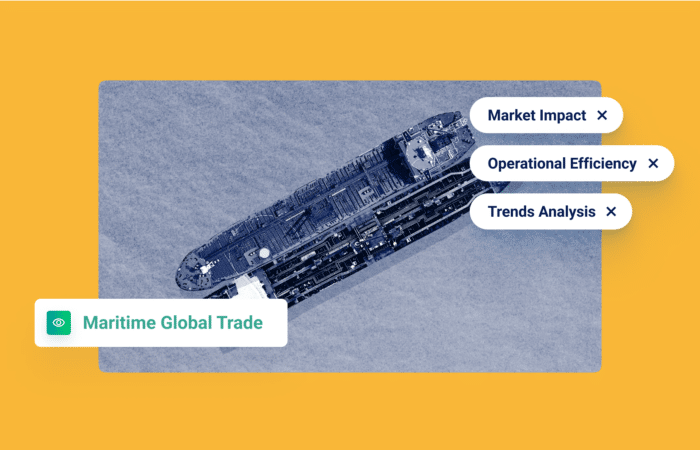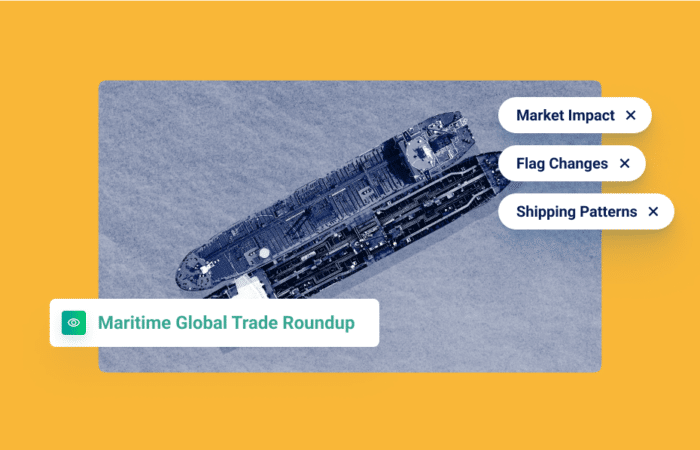What’s inside?
The International Transport Forum report Decarbonising Maritime Transport projected that “in a baseline scenario without additional policy measures, carbon emissions from global shipping are projected to reach approximately 1,090 million tonnes by 2035. This would represent a 23% emissions growth by 2035 compared to 2015.”
That would be unsustainable and would bring increased scrutiny upon the maritime ecosystem…
The maritime shipping industry transports 90% of global trade and accounts for almost 3% of the world’s carbon emissions. This number is expected to increase as maritime trade is predicted to triple by 2050. Various regulatory bodies require vessels to monitor and report fuel consumption and emissions, to reduce carbon emissions.
The first step – making vessels’ fuel consumption visible
How can stakeholders – including charterers, shipowners, energy companies, and financial institutions – take the first step towards decarbonization? To assist stakeholders in managing their carbon footprint while increasing economic efficiency, Windward has launched our new Vessel Fuel Consumption API. A unique AI solution providing fuel consumption assessments with up to 97% accuracy.
“The first step towards decarbonizing the maritime industry is improving the visibility of vessels’ fuel consumption,” according to Ami Daniel, CEO and Co-Founder of Windward. “Environmental concerns and ESG are primary goals for both companies and consumers. We are approaching the point of no return, and providing accurate assessments of consumption is key in making business decisions that are both economical and, more importantly, environmentally conscious. We are proud to use our maritime expertise and AI to contribute to the industry’s efforts in creating a sustainable future and protecting the environment for future generations.”
What is fuel consumption measurement?
OPEX expenses on fuel constitute up to 70% of a vessel’s expenses. Traditionally, fuel consumption data is reported manually in noon reports, a data sheet prepared by the ship’s chief engineer (or another crew member) daily, often at noon. The report details the vessel’s position and other relevant standardized data to assess the ship’s performance. It’s used to analyze various parameters, including daily fuel consumption and the total weight of cargo carried.
Why fuel consumption accuracy matters
Since this method is a manual process, it can often be inaccurate, inconsistent, and prone to human errors or potential falsification, which can be expensive. When owners lack visibility, they cannot spot potential discrepancies between reported and actual fuel consumption.
Having a reliable source of truth for fuel consumption is the initial step in the maritime industry’s journey toward decarbonization. The more visibility stakeholders have, the more they can control fuel consumption and carbon emissions. This visibility will empower them to charter the most efficient vessels and jettison the inefficient ones, negotiate better time charter equivalent (TCE) rates, and optimize sailing routes and times. The less fuel that is consumed, the less carbon that will be emitted. This way, stakeholders can ensure they are moving toward a more sustainable future.
The future is green
“Human emissions of carbon dioxide and other greenhouse gasses – are a primary driver of climate change – and present one of the world’s most pressing challenges… A changing climate has a range of potential ecological, physical, and health impacts, including extreme weather events (such as floods, droughts, storms, and heatwaves); sea-level rise; altered crop growth; and disrupted water systems.”The maritime ecosystem is already feeling the pressure and moral imperative to work towards net zero. With important regulations being discussed, and goals set to reduce carbon emissions, it’s important to obtain technology that can provide an objective way to track and calculate the fuel consumption of any tanker across the globe more reliably and consistently.















